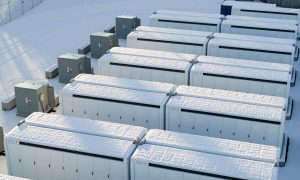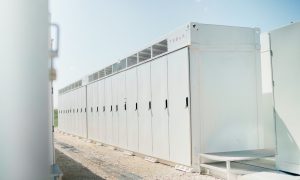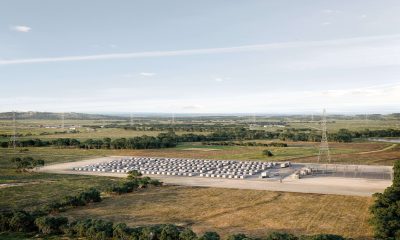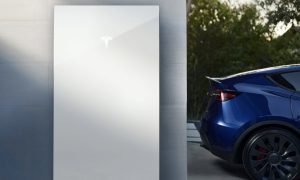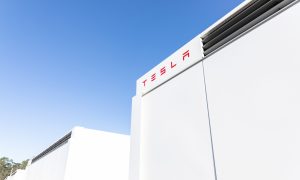News
SolarCity and Airbnb partner on a Tesla-like referral program
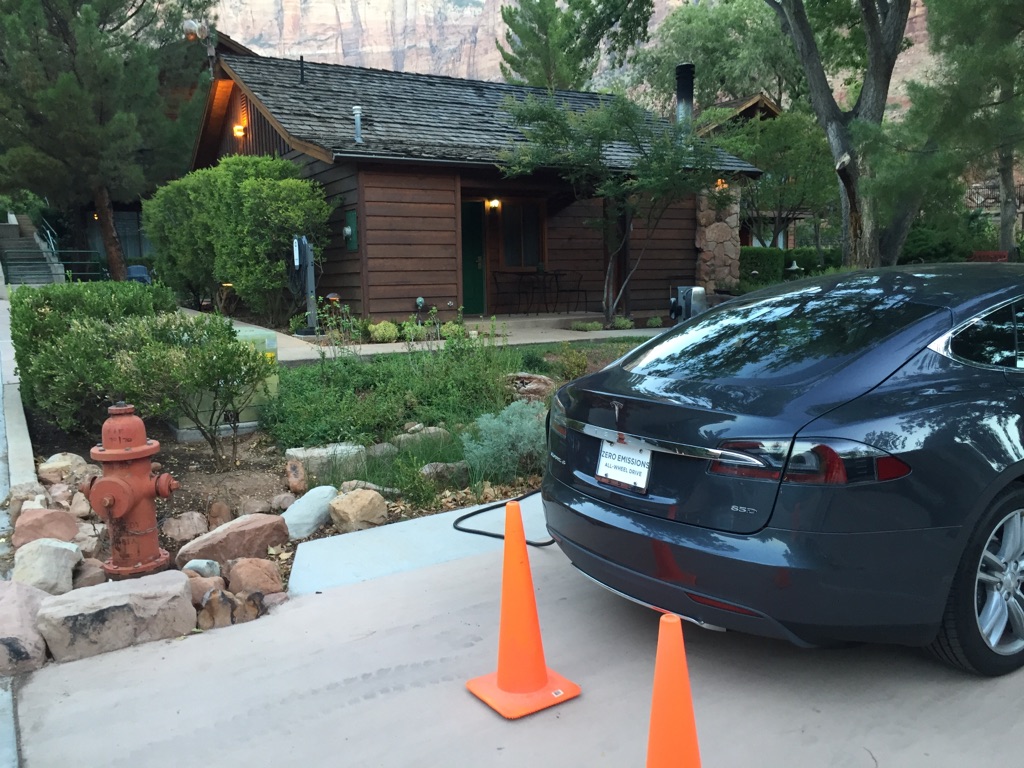
Tesla’s partnership with home-sharing service Airbnb, to install destination chargers in select host homes, have opened new doors of opportunity between the two companies. With one month left before Tesla and SolarCity shareholders vote on their proposed merger, SolarCity announced through a press release that it will be teaming up with Airbnb on an incentive program that offers a $1,000 discount for hosts to install a SolarCity solar system onto their homes.
Airbnb hosts and members: Install a solar generation system, and receive a $1000 discount through SolarCity.
SolarCity customers: You have a $100 travel credit waiting for you for future Airbnb bookings.
Airbnb’s Head of Global Policy Chris Lehane shared the company’s philosophy about pairing up with SolarCity. “We are indeed that climate friendly travel option that we believe guests are looking for,” he said. He added that their customers place a high value on lowering their environmental footprint, and Airbnb customers, in particular, are looking for places to stay that understand the importance of joining in with others who share the belief that clean renewable decentralized energy is necessary for the future success of the planet.
LeHane noted that Airbnb currently has already proven itself to be a leader in the environmental travel industry in the U.S.
- Airbnb has reduced water consumption by 4.2 billion liters vs. traditional accommodation options.
- Greenhouse gas reductions are nearly equivalent to what is generated by 560,000 cars on U.S. roads per year.
Airbnb is part of what is known as the “sharing economy,” which was inspired by a series of factors including the 2009 global economic crisis, millennial environmental focus, and the acceptance of social media as a serious information source. The numbers of people who now participate in the sharing economy are quite significant. With 100 million users, 640,000 hosts, and 2.3 million listings, Airbnb is the role model for other sharing economy businesses.
SolarCity, too, is an innovator that sets industry standards. Its business is a litany of renewable energy services such as solar energy products and services. It offers installation, ongoing monitoring, and repair services of solar energy systems in the U.S. and also provides services to homeowners, businesses, schools, non-profits and government organizations.
“The great majority of our customers go solar with absolutely no money out of pocket,” related SolarCity President of Global Sales Toby Corey. He explained that SolarCity surveys the business market, looking for programs and partnerships that allow it to alleviate expenditures for potential customers. A majority of SolarCity customers don’t put money down on installation financing plans, so the $1,000 credit from the Airbnb venture will be applied to their payback. That means the overall repayment period will be reduced.
SolarCity operates in 19 states currently, which means Airbnb members in any of those U.S. markets can take advantage of the program. With 300,000 customers, SolarCity can help Airbnb to harness the millennial market, a target audience for most sharing economy business and one that both SolarCity and Airbnb hope to call their own. As reported on Ecoprenteurist, millennials make up a significant portion of today’s target business audience. Millennials are the 2 billion people born between the early 1980s and 2000. 81% of millennials believe business has a key role to play in achieving the Sustainable Development Goals (SDGs), the guiding business practices shaped by world leaders from 193 nations as outcome from the COP21 summit in Paris.
News
Tesla begins Robotaxi certification push in Arizona: report
Tesla seems serious about expanding its Robotaxi service to several states in the coming months.

Tesla has initiated discussions with Arizona transportation regulators to certify its driverless Robotaxi service in the state, as per a recent report from Bloomberg News. The move follows Tesla’s launch of its Robotaxi pilot program in Austin, Texas, as well as CEO Elon Musk’s recent comments about the service’s expansion in the Bay Area.
The Arizona Department of Transportation confirmed to Bloomberg that Tesla has reached out to begin the certification process for autonomous ride-sharing operations in the state. While details remain limited, the outreach suggests that Tesla is serious about expanding its driverless Robotaxi service to several territories in the coming months.
The Arizona development comes as Tesla prepares to expand its service area in Austin this weekend, as per CEO Elon Musk in a post on X. Musk also stated that Tesla is targeting the San Francisco Bay Area as its next major market, with a potential launch “in a month or two,” pending regulatory approvals.
Tesla first launched its autonomous ride-hailing program on June 22 in Austin with a small fleet of Model Y vehicles, accompanied by a Tesla employee in the passenger seat to monitor safety. While still classified as a test, Musk has said the program will expand to about 1,000 vehicles in the coming months. Tesla will later upgrade its Robotaxi fleet with the Cyercab, a two-seater that is designed without a steering wheel.
Sightings of Cybercab castings around the Giga Texas complex suggests that Tesla may be ramping the initial trial production of the self-driving two-seater. Tesla, for its part, has noted in the past that volume production of the Cybercab is expected to start sometime next year.
In California, Tesla has already applied for a transportation charter-party carrier permit from the state’s Public Utilities Commission. The company is reportedly taking a phased approach to operating in California, with the Robotaxi service starting with pre-arranged rides for employees in vehicles with safety drivers.
News
Tesla sets November 6 date for 2025 Annual Shareholder Meeting
The automaker announced the date on Thursday in a Form 8-K.

Tesla has scheduled its 2025 annual shareholder meeting for November 6, addressing investor concerns that the company was nearing a legal deadline to hold the event.
The automaker announced the date on Thursday in a Form 8-K submitted to the United States Securities and Exchange Commission (SEC). The company also listed a new proposal submission deadline of July 31 for items to be included in the proxy statement.
Tesla’s announcement followed calls from a group of 27 shareholders, including the leaders of large public pension funds, which urged Tesla’s board to formally set the meeting date, as noted in a report from The Wall Street Journal.
The group noted that under Texas law, where Tesla is now incorporated, companies must hold annual meetings within 13 months of the last one if requested by shareholders. Tesla’s previous annual shareholder meeting was held on June 13, 2024, which placed the July 13 deadline in focus.
Tesla originally stated in its 2024 annual report that it would file its proxy statement by the end of April. However, an amended filing on April 30 indicated that the Board of Directors had not yet finalized a meeting date, at least at the time.
The April filing also confirmed that Tesla’s board had formed a special committee to evaluate certain matters related to CEO Elon Musk’s compensation plan. Musk’s CEO performance award remains at the center of a lengthy legal dispute in Delaware, Tesla’s former state of incorporation.
Due to the aftermath of Musk’s legal dispute about his compensation plan in Delaware, he has not been paid for his work at Tesla for several years. Musk, for his part, has noted that he is more concerned about his voting stake in Tesla than his actual salary.
At last year’s annual meeting, TSLA shareholders voted to reapprove Elon Musk’s compensation plan and ratified Tesla’s decision to relocate its legal domicile from Delaware to Texas.
Elon Musk
Grok coming to Tesla vehicles next week “at the latest:” Elon Musk
Grok’s rollout to Tesla vehicles is expected to begin next week at the latest.

Elon Musk announced on Thursday that Grok, the large language model developed by his startup xAI, will soon be available in Tesla vehicles. Grok’s rollout to Tesla vehicles is expected to begin next week at the latest, further deepening the ties between the two Elon Musk-led companies.
Tesla–xAI synergy
Musk confirmed the news on X shortly after livestreaming the release of Grok 4, xAI’s latest large language model. “Grok is coming to Tesla vehicles very soon. Next week at the latest,” Musk wrote in a post on social media platform X.
During the livestream, Musk and several members of the xAI team highlighted several upgrades to Grok 4’s voice capabilities and performance metrics, positioning the LLM as competitive with top-tier models from OpenAI and Google.
The in-vehicle integration of Grok marks a new chapter in Tesla’s AI development. While Tesla has long relied on in-house systems for autonomous driving and energy optimization, Grok’s integration would introduce conversational AI directly into its vehicles’ user experience. This integration could potentially improve customer interaction inside Tesla vehicles.
xAI and Tesla’s collaborative footprint
Grok’s upcoming rollout to Tesla vehicles adds to a growing business relationship between Tesla and xAI. Earlier this year, Tesla disclosed that it generated $198.3 million in revenue from commercial, consulting, and support agreements with xAI, as noted in a report from Bloomberg News. A large portion of that amount, however, came from the sale of Megapack energy storage systems to the artificial intelligence startup.
In July 2023, Musk polled X users about whether Tesla should invest $5 billion in xAI. While no formal investment has been made so far, 68% of poll participants voted yes, and Musk has since stated that the idea would be discussed with Tesla’s board.
-

 Elon Musk1 week ago
Elon Musk1 week agoTesla investors will be shocked by Jim Cramer’s latest assessment
-

 Elon Musk3 days ago
Elon Musk3 days agoElon Musk confirms Grok 4 launch on July 9 with livestream event
-

 Elon Musk14 hours ago
Elon Musk14 hours agoxAI launches Grok 4 with new $300/month SuperGrok Heavy subscription
-

 News7 days ago
News7 days agoTesla Model 3 ranks as the safest new car in Europe for 2025, per Euro NCAP tests
-

 Elon Musk2 weeks ago
Elon Musk2 weeks agoA Tesla just delivered itself to a customer autonomously, Elon Musk confirms
-

 Elon Musk1 week ago
Elon Musk1 week agoxAI’s Memphis data center receives air permit despite community criticism
-

 Elon Musk2 weeks ago
Elon Musk2 weeks agoTesla’s Omead Afshar, known as Elon Musk’s right-hand man, leaves company: reports
-

 News2 weeks ago
News2 weeks agoXiaomi CEO congratulates Tesla on first FSD delivery: “We have to continue learning!”


